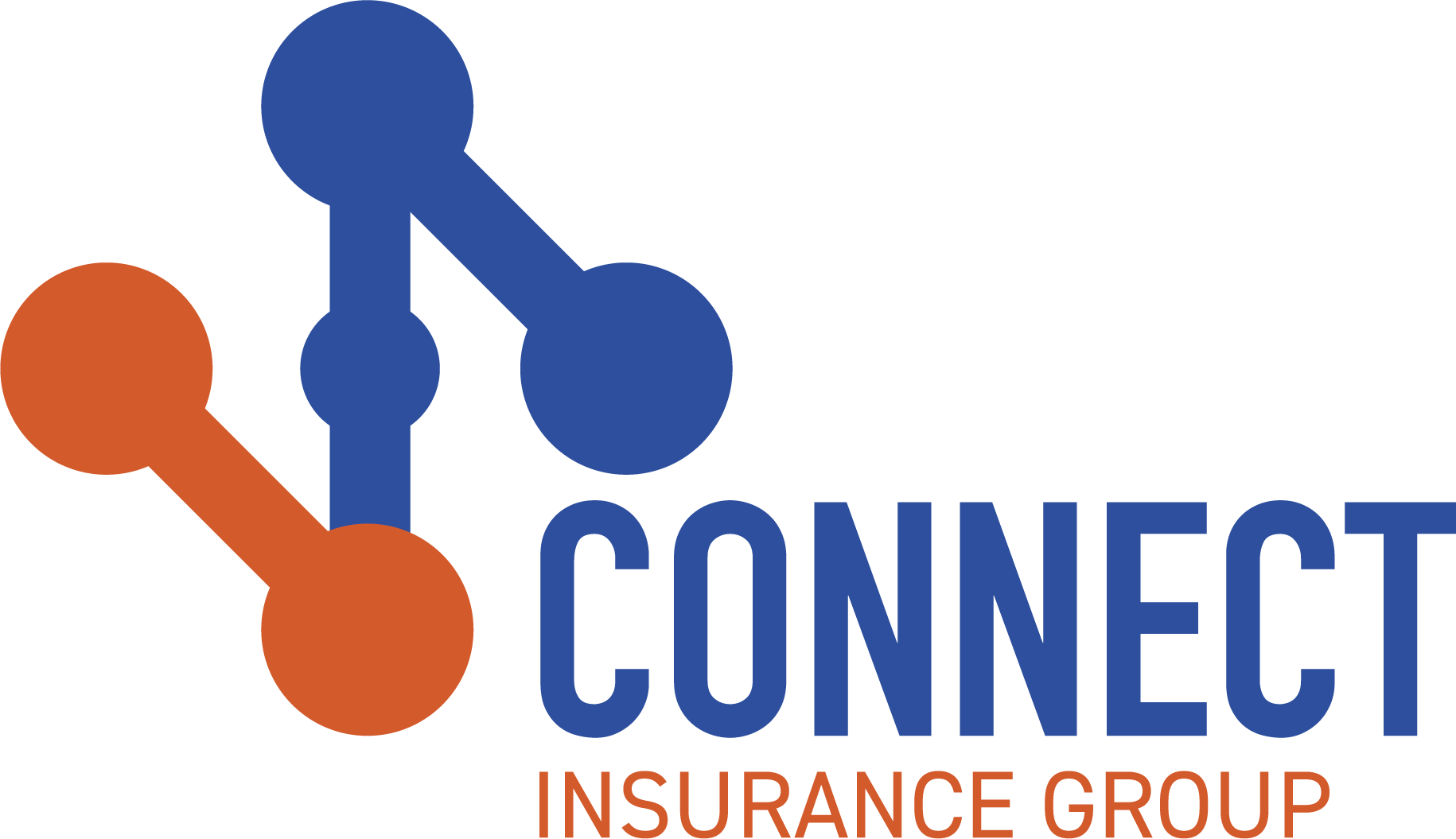For your business
What is It?
GL insurance is sometimes called business liability insurance or commercial general liability insurance. This type of liability insurance coverage helps protect your business from claims of bodily injury or property damage that can come up during normal business operations. Without general liability coverage, you’d have to pay for medical expenses and property damages out of pocket.
What Does General Liability Cover?
Bodily Injury
If a customer injures themselves in your place of business, this policy can help cover their medical bills.
Property Damage
Employees sometimes damage customers’ property while delivering products or services. Your GL policy can help pay for the damages.
Reputational Harm
General liability insurance policies can help cover malicious prosecution, slander, libel, wrongful eviction and violating a person’s privacy.
Advertising Injuries
Claims of copyright infringement are covered with a general liability policy.
Damage to premises rented to you
If your rented property is damaged by fire, lightning or an explosion, your general liability policy can help pay for repairs.
What do you need to consider?
GL insurance is sometimes called business liability insurance or commercial general liability insurance. This type of liability insurance coverage helps protect your business from claims of bodily injury or property damage that can come up during normal business operations. Without general liability coverage, you’d have to pay for medical expenses and property damages out of pocket.
General liability insurance does not cover employee injuries, car accidents, punitive damages (in most states), labor, tort, or professional error.
As a contractor or small business owner, you need some form of business liability insurance to safeguard your livelihood.
A single accident could result in a lawsuit that you might not be able to handle. A great way to protect against this is to make sure you have liability coverage that matches your level of exposure.
Some employers or clients might also require you to carry a certain amount of general liability before you can work for them.
General liability insurance only pays for third-party damages, not yours. You’re considered the “first-party”. The “third-party” is the one that has a claim against you. This means general liability won’t cover your property or equipment against theft or damage.
The cost of general liability insurance coverage varies based on the size of your business, the industry you are in, your location, and the amount of coverage you need.
What is it?
Commercial auto insurance is a vehicle insurance policy which covers any injuries and damages that are caused by or to you or your employees, while in the scope of business, to covered vehicles, up to your policy limits.
What Does Commercial Auto Insurance Cover?
Commercial auto insurance covers injuries that you or your employees may cause to other people and their property while driving.
Auto liability
Which protects you and your company by paying for bodily injury or property damages you may become legally liable for as a result of a covered automobile accident.
Medical payments
Which pays medical expenses, up to your coverage limit, for you, your employees and your passengers arising from motor vehicle accidents – regardless of who is at fault.
Comprehensive coverage
Which can help pay for damage to your vehicle from something other than another vehicle like vandalism, theft, weather events and accidents involving animals (subject to deductible).
Collision coverage
Which pays for damage to your vehicle from another vehicle whether you hit another vehicle or object, another vehicle hits you, or your vehicle rolls over – regardless of who is at fault (subject to deductible).
Uninsured and underinsured motorist coverage
Which pays for medical expenses, loss of income and other damages owed to you, your employees (expenses that are not covered by workers’ compensation) or your passengers when an accident is caused by an uninsured or underinsured motorist.
What do you need to consider?
A commercial auto policy also can include coverage for cars you borrow or rent, as well as coverage for employees who use their cars for your business .
You may need a commercial auto policy if:
You’re using your vehicle to transport goods.
You need higher limits of liability because of the nature of your work.
Employees operate the vehicle.
The vehicle is registered to the business.
What is it?
A Business Owner’s Policy (BOP) combines business property and business liability insurance into one business insurance policy.
BOP insurance helps cover your business from claims resulting from things like fire, theft or other covered disasters. Business owners’ insurance also helps cover claims that could arise from your business operations. These include claims of bodily injury or property damage. They also include claims related to personal and advertising injury.
What does BOP cover?
Business Owner’s Policy (BOP) offers businesses a way to save money while getting broad coverage for things like:
Fire
Theft
Lawsuits
Loss of income
Buildings
Equipment
Inventory
Furniture
Fixtures
What do you need to consider?
A BOP policy can be custom-made to fit industry specific businesses. This means it’s great for businesses of any size, especially small businesses.
BOP insurance for business owners is built to cover companies that generally face the same risks. Customizing your BOP Insurance is an important first step when insuring your business. Small business owners should do this from the beginning to protect against losses and damages early on.
BOP can include:

Commercial property

General Liability

Business Income

Equipment breakdown
What is it?
Business property insurance is coverage that can protect your company’s physical assets from unexpected events, including fires, windstorms, theft and vandalism. Physical assets covered by commercial property coverage could include the business property you own or rent, office equipment, furniture, fixtures, inventory and other items you count on to support your daily operations.
Through built-in loss prevention services, business property insurance can also deliver a competitive advantage by helping you identify and manage property-related risks specific to your company, allowing you to remain focused on your business. Travelers has expertise across many industries, helping companies identify and reduce property risks.
What does property insurance cover?
Commercial property insurance protects your company’s physical assets from many unforeseen events, such as fire, explosion, storms, theft and vandalism. Additional coverage is often also available for floods, earthquakes, equipment breakdown and other direct causes of loss to your business.
What do you need to consider?
Commercial property insurance is for all businesses, especially those that have buildings, critical equipment and assets, or access to customers and suppliers.
It also includes business interruption insurance. So, if you can’t operate your business because of covered property damage, your policy can help replace your lost income.
Insurance companies value commercial property in three ways:
Actual cash value
How much it’d cost to replace an item, minus its depreciation.
Replacement cost value
How much it’d cost to replace an item with something comparable or equivalent.
Fair market value
The cost of an item if it were to go on the market today.
Be aware that your commercial property insurance policy doesn’t cover every type of property damage. This coverage can’t help your business if:
Your customer drops their laptop when they trip over a box in your office.
One of your employees puts a hole in your client’s wall.
You get into an accident while making a delivery to a customer and damage your vehicle.
A nearby brook overflows after a heavy rainfall causes flooding near your building and damages your inventory.
You or your employees intentionally damage property.
What is it?
Errors and omissions insurance, also known as E&O insurance and professional liability insurance, helps protect you from lawsuits claiming you made a mistake in your professional services. This insurance can help cover your court costs or settlements, which can be very costly for your business to pay on its own.
What does Errors & Omissions insurance cover?
Errors and omissions insurance helps protect your business from claims of:
Negligence
Omissions
Violation of good faith and fair dealing
Errors in services given
Misrepresentation
Innacurate advice
What do you need to consider?
Errors and omissions insurance doesn’t help cover claims from events that happened before your policy’s retroactive date. It also doesn’t help your business with claims filed after your policy’s extended reporting period.
Be aware that errors and omissions doesn’t cover every type of liability claim. This insurance won’t help your business with claims of:
Illegal acts and purposeful wrongdoing, such as intentionally breaking the law or deceiving your customers or clients.
Bodily injury or property damage that your business causes. For these kinds of claims, you’ll need a general liability insurance policy.
Employee injuries or illnesses caused by their work. A workers’ compensation insurance policy can give your employees benefits to help them recover from a work-related injury or illness. Be aware that many states require this coverage if you have employees.
Discrimination or harassment in the workplace that your employees file. Getting employment practices liability insurance can help cover these types of claims.
You can help keep your errors and omissions insurance cost down by:

Training your employees

Checking your contracting system for quality control

Communicating with customers regularly about issues to make sure they’re satisfied
Different factors can impact your errors and omissions insurance cost, such as:
Business risk
If you’re in a higher risk industry, you’ll likely pay a more expensive rate. For example, a business owner of a financial consulting company that gives advice on investing millions of dollars will probably have a higher premium than a smaller financial advisor.
Coverage limits
The higher your policy limits, the more coverage you’ll have, which usually means higher premiums.
Claims history
Typically, you may pay more for your E&O coverage if you have a history of liability claims made against your business.
Location
Rates will most likely vary depending on where your business is. For instance, you may have a higher insurance cost if you operate in a busy city.
What is it?
Umbrella insurance policy is an additional insurance that provides protection beyond the limits and existing coverage of other policies. The umbrella insurance policy may provide coverage for injuries, property damage, certain lawsuits, and personal liability situations.
What does umbrella cover?
An umbrella insurance policy can help cover defense costs when you are being sued for damages to someone else’s property or injuries caused to others in an accident.
Whether it’s a serious car accident involving extensive medical bills or an incident on your property, you may quickly find yourself responsible for damages that exceed the limits of your auto, homeowners or boat policies. That’s when having an umbrella insurance policy can provide coverage that goes beyond the limits of your primary coverage.
An umbrella insurance policy includes several liability protections, such as:
Auto bodily injury liability
This helps cover a person’s treatment costs if they get hurt in a car accident. This coverage steps in when you reach your auto liability limit.
Bodily injury liability
This can help cover another person’s medical bills. If someone gets hurt and sues you, this coverage protects you once your liability limit has been reached.
Landlord insurance
This coverage helps protect you if someone gets hurt at your rental property and sues you. This coverage helps once your liability limit has been exhausted.
Property damage liability
This helps pay for damage to another person’s property or vehicle. This coverage will take effect when your liability limit has been exhausted.
What do you need to consider?
Your personal umbrella insurance policy doesn’t cover every claim. For example, it won’t cover losses related to your business. For that kind of claim, you’ll need a commercial umbrella insurance policy.
Other examples of coverage not included in a typical umbrella policy are:

Business losses
Damage to your business property or losses related to the running of your business generally would not be covered by a personal umbrella policy. This exclusion applies even if your business is operated out of your home. Consider purchasing business insurance if you need this type of coverage.

Intentional acts
A personal umbrella policy isn’t designed to protect you from liability connected with your own intentionally harmful behavior; for example, if you intentionally harm a visitor to your home.
Umbrella policies are typically very affordable and can be a great way to help protect yourself against the potentially devastating costs of major claims that exceed the limits of your primary home and auto policies.
To figure out the amount of umbrella insurance coverage you need:
Estimate the total value of all your assets. Start with your home’s worth. Then, look at your net worth and add in the total amount of your savings, stocks and retirement.
Review your homeowners and car insurance policies to make sure there’s enough coverage to protect your assets in the event of a catastrophic loss.
Think about other items you protect, such as RV insurance, ATV insurance or boat insurance. Make sure you have enough coverage to protect these things if there’s a loss.
What is it?
You devote months to planning, working out every detail for what should be a perfect event. Unfortunately, even the best planned events are at the mercy of the unexpected. Like a flood that ruins your venue. Or a caterer who inexplicably goes bottom up. And chances are, you’ll still be on the hook for all or most of the costs. Thankfully, special event insurance can help protect what you’ve invested in your event should the unexpected put a dark cloud over your big day.
What does event insurance cover?
Special event insurance helps cover financial losses that may occur when an accident, extreme weather, illness or a problem with a key vendor puts a stop to your private event. Policies often cost less than you might expect and typically offer two types of coverage:
Event cancellation coverage reimburses you for lost deposits and other charges when unforeseen circumstances cause you to cancel or postpone your function. This type of coverage may extend to special gifts, attire (lost wedding bands, for instance) and damaged photo and video files. It does not, however, cover a change of heart.
Event liability coverage helps protect you from financial loss if you’re held responsible for an accident that hurts someone or causes property damage at your event. You may even be covered if one of your guests creates havoc. Many venues now require you to have liability protection before you can even book there.
Events that are covered by special event insurance include but are not limited to:

Weddings

Engagement parties

Business meetings

Non-Profit functions

Retirement parties

Anniversary parties

Corporate events
What do you need to consider?
It’s a good idea to purchase a policy as soon as you begin making deposits, because unexpected issues can crop up at any point. That said, you need to buy event cancellation coverage at least 14 days before your function date and liability coverage at least one day prior. You can buy both up to 24 months in advance.
No one wants to think about something unpleasant when planning an important day, but it’s nice to know there’s a policy that can help protect you from the unexpected.

